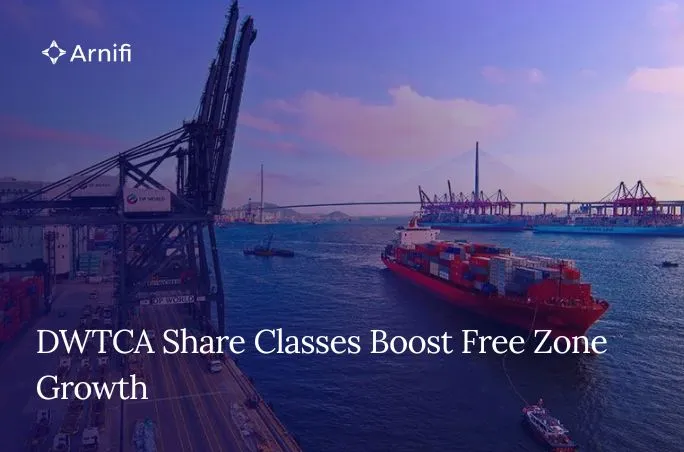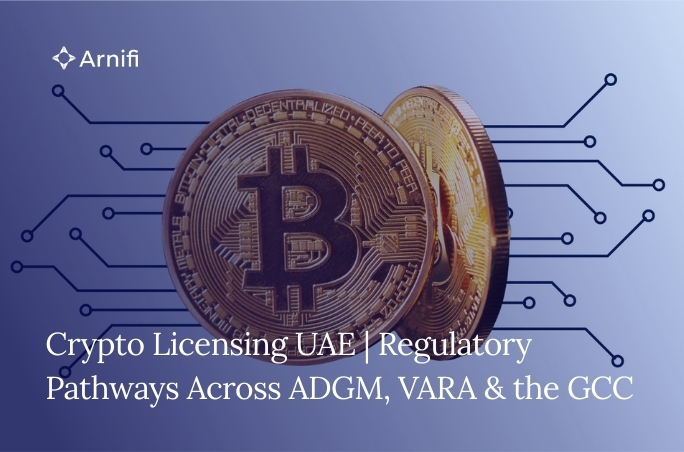DWTCA Introduces New Framework to Power Next‑Gen Business Growth
by Ishika Bhandari Nov 14, 2025  6 MIN READ
6 MIN READ

Table of contents
Dubai World Trade Centre Authority (DWTCA) has announced a major change designed to enhance capital structuring flexibility for companies registered within the DWTC Free Zone. The new framework allows these companies to issue multiple classes of shares, enabling nuanced governance, investment, and growth strategies.
A new era for share capital in the Free Zone
Under the new regime, companies in the Free Zone will no longer be restricted solely to “ordinary shares,” but may offer differentiated share classes such as preference shares, founder’s shares, restricted shares, or tiered class A/B/C/D shares. Each share class may have different rights concerning dividends or voting powers, transfer restrictions, redemption, or conversion facilities, and minority-shareholder protections.
That flexibility is now incorporated into a company’s Memorandum of Association (MOA), permitting bespoke structuring in line with business objectives, investor ambitions, talent retention plans, and succession strategies.
Strategic alignment with Dubai’s economic agenda
The reform corresponds with the wider Dubai Economic Agenda D33 – Dubai’s ambition to double its economy in size by 2033 and place itself among the top three urban economies of the world. It would further enhance the DWTCA‘s attractiveness as a hub for competitive businesses on the global stage by enabling share-class structures that feature greater complexity.
In the words of Abdalla Al Banna, Vice President of Free Zone Operations at DWTCA:
“This pivotal step creates an enabler to establish scaled businesses that bring investment opportunities. The founders and investors of today should enjoy more flexible, transparent corporate structures that balance control, raise capital, and retain talent.”
What this means for companies
The reform brings many pragmatic avenues for Free-Zone businesses:
- Attracting diverse investors: The shares offered can be tailored to the profiles of different investor types with different risk-reward expectations from investing.
- Founder and talent incentives: Enable issuing special share classes, which give founders or key employees preferred rights or rights to equity participation, dilution-free.
- Succession and family‑office structuring: A family-and-office structure can create share-class regimes that address generational transitions, protect legacy shares, or ring-fence certain rights.
- Governance and minority safeguards: The construct embodies the protection of shareholder rights, as well as the required transparency, notwithstanding a rather complex structural set-up of shares at the level of their types.
- Redemption, conversion, or transfer rights: Companies may structure share classes to include optional features, adding flexibility in capital planning.
Why this reform matters now
The limitation of share classes has resulted in many jurisdictions falling behind in the modern ways of raising capital through equity, especially for growth-oriented firms, start-ups, and family enterprises. This reform by DWTCA focuses on the following key areas of concern:
- Balance between control and capital: Founders will be able to have control without having to offer different forms of shares to the investors.
- Attracting global investors and talent: The flexibility in structuring the company will put Dubai above other cities, attracting global investors to Dubai.
- Competitive edge for the Free Zone ecosystem: This tool in corporate structuring will, as a matter of fact, draw DWTCA ahead of other jurisdictions.
- Support for business diversification and innovation: These elaborate structures will fuel businesses for a bigger scope of operation, along with investment and better governance.
Implementation: Key considerations
While the framework presents good enablers, effectiveness can be determined only by the actual implementation and supervision. Important parameters are:
- Clear disclosure and transparency: MOAs must clearly state the rights and conditions.
- Regulatory alignment: The design of share classes must comply with the relevant corporate, securities, and tax regulations.
- Governance discipline: Sophisticated structures can encumber decision-making and shareholder engagement.
- Investor communication: Clear communication of differences between share classes to stakeholders.
- Exit and lifecycle planning: Features such as share conversion or share redemption should also be part of the long-term considerations.
- Talent and incentive alignment: Employee share-class-based incentive plans should complement wider corporate governance and value creation aims.
Broader business impact and ecosystem benefits
The new DWTCA framework sends quite a few strong signals into the larger business ecosystem:
- Dubai, as a flexible, investor‑friendly jurisdiction: It allows more corporate structuring agility.
- Encouraging private-sector dynamism: Enables start-up businesses along with business models that are modern and innovative.
- Enabling regional capital markets evolution: Prepares companies for future listings or international investment.
- Supporting succession and family-business transitions: Aiding inter-generational transfer and governance needs.
- Talent retention and equity participation: Enabling creative equity-based incentive structure design by businesses.
Possible challenges and risks
As with any reform introducing flexibility and complexity, risks exist:
- Risk of complexity overload: Too complex structures can confuse stakeholders and complicate governance.
- Minority‑shareholder concerns: Differentiated rights should be managed to avoid perceptions of unfairness.
- Regulatory and legal enforcement: Enforceability of rights under the MOA is essential.
- Market adoption: Adoption is determined by whether firms and advisers accept structures and investors see them favorably.
- Exit dynamics: If planned well, complex share regimes can complicate future exits or mergers.
Outlook and next steps
This is a timely move by the DWTCA. Companies already operating or considering setting up in DWTC Free Zone should:
1. Review their existing capital structures and MOAs to identify potential restructuring opportunities.
2. Engage legal and corporate-governance advisors to design optimal share-class regimes aligned with strategic goals.
3. Ensure that investors, as well as stakeholders and internal teams, are well informed about the rights attached to share classes.
4. Adapt new capital structuring options into strategic planning for fundraising, talent plans, or exit/lifecycle events.
5. Monitor DWTCA guidelines and additional regulatory guidance to ensure compliance.
This reform, when fully leveraged, could contribute greatly to boosting a company’s alignment with governance and its agility and attractiveness to capital, hence contributing to Dubai’s economic ambitions and the Free Zone ecosystem.
How Arnifi Can Help?
Time to make strategic moves for businesses already in or considering entry into the DWTC Free Zone. Arnifi specializes in navigating corporate structuring, governance, compliance, and capital formation challenges for companies. Services include:
- Creating the optimal share-class structure from the strategic objectives of founder control, investor mix, talent incentive, and succession planning.
- Providing advice regarding proposed amendments to an MOA, taking care of governance safeguards, and ensuring regulatory compliance in the Free Zone context.
- Articulating capital-structure strategy to investors, boards, and all relevant stakeholders.
- The corporate governance infrastructure in place should support the model of complex share classes, transparency, and investor confidence.
Collaborating with Arnifi will position your firm to take advantage of DWTCA’s new framework to identify sustainable growth, investment readiness, and market leadership. Get in touch with Arnifi to discuss specific and personal solutions for your business.
Top UAE Packages

Related Articles
Top UAE Packages



